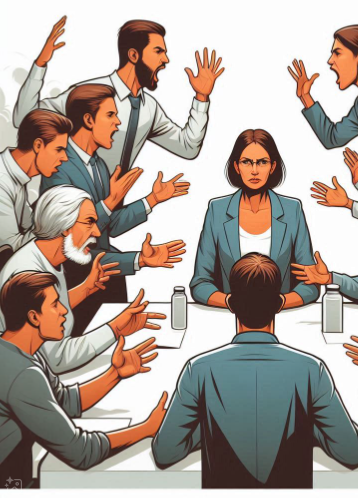
|
Getting your Trinity Audio player ready...
|
In simple terms, misogyny is hatred or prejudice against women and girls. It involves the rejection of feminine qualities and holds in contempt institutions, work, hobbies, or habits associated with women.
For centuries, misogyny has shaped societal structures and dictated systems across the world by establishing norms, laws, and institutions that limit women’s roles, rights, and freedoms. These structures now prioritise men’s authority and reinforce gender biases, which are rooted in and perpetuated by misogynistic attitudes.
Misogynistic beliefs are based on contradictory logic, revealing deep flaws in their structure. Here are 16 guiding principles that misogyny operates by:
- Women are responsible for what men do: This rule implies that, regardless of a man’s harmful actions or who they impact, be it families, careers, or communities, women are expected to shoulder the blame and shame. Men must never be held accountable as the responsibility is shifted on women, even in cases as serious as assault or abuse.
- Women saying no to men is a hate crime: Men view “NO” as a violation of their firmly rooted expectations of women’s obedience and compliance. Misogynistic men believe that a woman’s role is to prioritise male approvals and meet their needs, whether it is in a romantic, social, or professional setting. This rule views women’s autonomy as a threat, thereby framing women’s independence as an act of “hate” or “disrespect”.
- Women speaking for themselves are exclusionary and selfish: When women step outside of traditional expectations that prioritise serving men, they are selfish. The misogynistic norms dictate that women are meant to be self-sacrificing, modest, and deferential, valuing others’ perspectives above their own. Women speaking for themselves or setting boundaries challenges these norms.
- Women’s opinions are violence against men; thus, male violence against women is justified: Women asserting their views and challenging male authority is seen as a form of violence against men. This rule implies that male violence against women is justified and viewed as a response to the supposed threat posed by women’s autonomy and opinions.
- Women and feminism must be useful to men, or it is useless. This implies that the feminist movement must operate in a way and manner that aligns with male perspectives and comfort. Structures that do not benefit women like religion, traditions or marriage should be avoided and not challenged.
- Women who go around being female AT men by menstruating and breastfeeding babies deserve punishment.
- Women should always be grateful to men for everything. This implies that women are expected to feel indebted to men without any justifiable reason or actions that warrant their gratitude but solely based on their gender. Women are expected to be grateful to men for everything since they are the “providers and protectors” while women are “dependent and subordinate.”
- Men are whatever men say they are, and women are whatever men say they are. This rule implies that men dictate what women should be and establish the standards for what it means to be a woman, including how women should feel and what they should desire, while men’s identities and perceptions are defined by them.
- Men always know the “real reasons” for everything women do and say. This implies that women’s autonomy, decisions and experiences are dismissed and disregarded by men because they are all-knowing.
- The worst thing about male violence against women is that it makes men look bad: Male violence against women is not concerned with the harm it inflicts on women but the negative perception it creates for men. Protecting men’s reputation and societal standing is more important than addressing the impacts of violence against women. Men’s feelings need to be prioritised over the safety and rights of women.
- Whatever women suffer from, it is worse when it happens to men: Women’s experiences are invalid by men, as any suffering they endure is considered less significant than when similar experiences happen to men. This also implies that men’s experiences and sufferings deserve more attention than that of women because men’s lives are more valuable.
- Women’s ability to recognise male behaviour patterns is misandry: When women call out men for their actions, it is labelled as offensive and classified as misandry. While misogyny kills women, misandry simply holds men accountable for their behaviour.
- Angry women are crazy, angry men have trouble expressing themselves: Men are perceived as the logical gender, while women are seen as the emotional gender. So, when women express anger, it is dismissed as an emotional reaction. In contrast, when men display anger, it is viewed as justified because they are unable to express themselves.
- Women have the rights they need, the right to remain silent: Women must remain silent in pain, abuse, oppression and injustice. They must never speak up or exercise their human rights.
- Men are default, women are strange, the other: This means that men are the standard against which women are measured, thereby positioning women as outsiders or anomalies.
- Women’s bodies are public property. Everyone owns women’s bodies except the women themselves. This rule implies that women’s bodies are subject to the opinions, desires and scrutiny of men. Women are seen as objects or commodities meant for male pleasure and control rather than human beings with their rights and opinions.
These rules have been employed for years to manipulate and condition women into believing that this is the way things are meant to be. By understanding these rules, it becomes easier to recognise the patterns of misogyny and break the chains that have long held women back.






